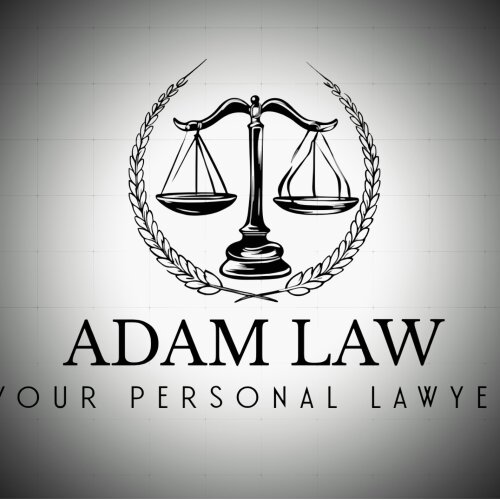
Best Guardianship Lawyers in Stockholm
Share your needs with us, get contacted by law firms.
Free. Takes 2 min.
List of the best lawyers in Stockholm, Sweden

About Guardianship Law in Stockholm, Sweden
Guardianship law in Stockholm, Sweden, falls under the Swedish Guardianship Code (Föräldrabalken). This legal framework is designed to protect individuals who are unable to take care of themselves due to age, illness, or disability. A guardian (god man or förmyndare) is appointed by the court to manage personal, medical, or financial affairs on behalf of the person needing assistance (principal or huvudman). The laws ensure that the principal’s best interests are upheld while maintaining their dignity and independence as far as possible.
Why You May Need a Lawyer
There are several situations where legal help may be necessary in the realm of guardianship:
- Contesting the need for guardianship: If there is a dispute over whether a person requires a guardian, legal representation can be crucial.
- Appointing a guardian: The process of assigning a guardian involves legal procedures, and legal advice can ensure the right person is appointed.
- Guardianship disputes: Conflicts may arise over the actions or decisions of a guardian, requiring legal intervention.
- Changing or terminating guardianship: Legal processes are involved in revising or ending a guardianship arrangement.
Local Laws Overview
Key aspects of guardianship laws in Stockholm, Sweden, include:
- Types of Guardianship: Different types of guardianships exist such as temporary, partial, and full guardianship.
- Court Involvement: All guardianship appointments and terminations require court approval.
- Monitoring: Guardians are subject to oversight by local authorities to ensure they act in the principal’s best interests.
- Principal’s Rights: Principals retain certain rights and should be involved in decisions affecting them as much as possible.
Frequently Asked Questions
1. What is Guardianship?
Guardianship is a legal arrangement where a person (guardian) is appointed to manage the personal, medical, or financial affairs of another person (principal) who is unable to do so themselves due to incapacity.
2. Who Can Be Appointed as a Guardian?
Typically, close family members are considered first, but any suitable individual can be appointed if they are found capable of fulfilling the responsibilities.
3. How Is a Guardian Appointed?
A guardian is appointed by the court after assessing the need for guardianship and determining the suitability of the proposed guardian.
4. Can Guardianship Be Temporary?
Yes, guardianships can be temporary if the need is only for a short period due to a temporary condition.
5. What Are the Responsibilities of a Guardian?
A guardian’s responsibilities may include managing finances, making medical decisions, and ensuring the personal well-being of the principal.
6. How Can Guardianship Be Contested?
If someone disagrees with the need for guardianship or the choice of guardian, they can file a petition with the court to review the decision.
7. Can Guardianship Be Ended?
Yes, guardianship can be terminated if the principal regains capacity, or if the guardian is unable to continue their duties. A court process is required.
8. What Rights Does the Principal Retain?
The principal retains all rights that do not require guardianship intervention and should be consulted in decisions affecting them as much as possible.
9. Are Guardians Paid?
Guardians may receive compensation for their services, but it is subject to court approval and review.
10. How Is a Guardian’s Performance Monitored?
Local authorities monitor the actions of a guardian to ensure they are fulfilling their duties responsibly and in the best interests of the principal.
Additional Resources
For additional information and assistance, consider the following resources:
- Swedish National Board of Health and Welfare (Socialstyrelsen)
- Local municipal social services (Kommunens socialtjänst)
- Swedish Courts (Sveriges Domstolar)
- Non-profit organizations providing legal aid services
Next Steps
If you need legal assistance with guardianship matters, follow these steps:
- Consultation: Seek a consultation with a lawyer who specializes in guardianship law to discuss your specific situation.
- Documentation: Gather all necessary documents, such as medical records, financial statements, and any existing legal orders.
- Filing: Your lawyer can help you file the appropriate petitions or motions with the court.
- Follow-Up: Attend court hearings and follow up with your lawyer to ensure proper management and completion of the guardianship process.
Lawzana helps you find the best lawyers and law firms in Stockholm through a curated and pre-screened list of qualified legal professionals. Our platform offers rankings and detailed profiles of attorneys and law firms, allowing you to compare based on practice areas, including Guardianship, experience, and client feedback.
Each profile includes a description of the firm's areas of practice, client reviews, team members and partners, year of establishment, spoken languages, office locations, contact information, social media presence, and any published articles or resources. Most firms on our platform speak English and are experienced in both local and international legal matters.
Get a quote from top-rated law firms in Stockholm, Sweden — quickly, securely, and without unnecessary hassle.
Disclaimer:
The information provided on this page is for general informational purposes only and does not constitute legal advice. While we strive to ensure the accuracy and relevance of the content, legal information may change over time, and interpretations of the law can vary. You should always consult with a qualified legal professional for advice specific to your situation.
We disclaim all liability for actions taken or not taken based on the content of this page. If you believe any information is incorrect or outdated, please contact us, and we will review and update it where appropriate.









